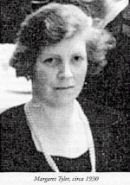It is a great stomach remedy disorders that arise from overeating gastric derangements of recent date. The sufferer feels he must throw up before there will be any relief. A few pellets of Antimonium crudum on the tongue will often settle the business, save the loss of a meal and all further suffering.
Then the peculiar stools, partly solid and partly fluid. And the form of diarrhoea oftenest with old people which alternates with constipation, where Antimonium crudum is the only remedy. The peculiar mental symptoms–the greatest sadness and woeful mood: the sentimental mood in the moonlight; ecstatic love.
“Child cannot bear to be touched or looked at–a gem!” Nash says that often in cases of gastric or remittent fever he has been led to the use of Antimonium crudum by this condition of the mind.
The cross child, not like Chamomilla which wants to be carried and soothed, but which will scream and cry and show temper at every little attention. Here the fever is apt to run higher at night, and the white tongue is almost always present.
He notices the finger-nails growing in splits, with horny spots: and the toe-nails that grow out of shape, or shrivel up and do not grow at all. And the very tender corns and callosities. (Here one remembers a case cured by Antimonium crudum) He says some of the worst cases of chronic rheumatism have been cured by Antimonium crudum, guided by the extreme tenderness of the soles of the feet. Horny excrescences anywhere on the skin make one think of Antim crud.
This remedy is most often needed in the extremes of life, in children and old people.
He draws attention to Antimonium crudum’s aggravations from heat of sun: also from radiate heat of fire; and also to its aggravations from cold bathing. He says that, when a case of long standing comes, dating the beginning of the trouble from swimming or falling into the water, we think of Antimonium crudum, and examine for further indications. (N. B.–Burnett’s great remedy here was Bellis per.)
HUGHES, Pharmacodynamics, gives a very brief account of this drug: but he quotes Dr. Clotar Muller in regard to its extraordinary efficacy in affections of the skin: “I have reason to think that Antimonium crudum is an invaluable remedy where pimples, pustules, pocks or furuncular elevations arise primarily or secondarily, especially when at the same time there is severe continued pricking itching of the skin, and after rubbing tenderness and soreness. Especially when such phenomena occur on the face or genitals.
In regard to its “horny places on the skin of the soles of the feet”, he quotes a recorded case where one of twenty years standing involving the entire sole, and very sensitive, was soon cured by the drug.
KENT points out that all the symptoms of Antimonium crudum seem to centre about the stomach. No matter what the complaint, the stomach takes part in it.
Antimonium crudum produces a very serious state of mind, and absence of the desire to live. “When I hear a patient say, `Oh, doctor, if I could only die!’ I do not like such a case.” The prostration is similar to Arsenicum, but Arsenicum has overwhelming fear of death, while this medicine has loathing of life. These over-excitable, intense, nervous, hysterical young girls and women are overcome by mellow lights such as flow through stained glass windows, or by the mellow light from the moon in the evening: that is what is meant by “Sentimental mood in the moonlight”.
Worse cold, damp weather: cold bathing. Yet many of the symptoms come on in the sun’s rays, and from the heat of an open grate. A child with whooping cough will cough more after looking into the fire. Constant nausea: stomach feels too full, as if he had eaten too much, when he has not eaten at all: feels distended when the abdomen is flat. Gouty persons where the nodules on fingers and joints become painless and the stomach and intestines become distended and painful.
Skin ulcerated: a tendency to grow warts, callosities, bad nails and bad hair. The thickened skin on soles of feet are very sore to walk upon, because of their numerous centres of little corns. Warts on hands: nails brittle, black, can hardly be cut.
P. S.–Dr. Schwartz of California writes me that Antimonium crudum is “an almost specific in Rheumatoid arthritis”.

